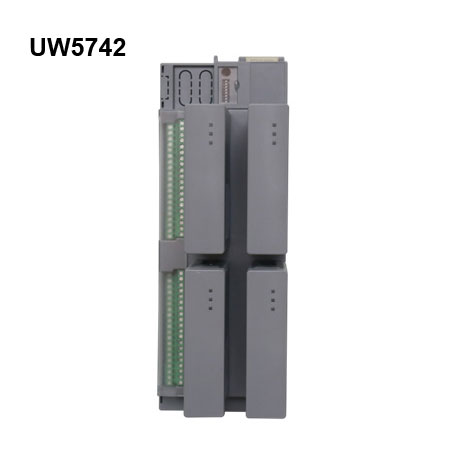Why Is a Distributed Control System Essential for Modern Industrial Automation and Efficiency?
2025-02-21
In today’s rapidly advancing industrial landscape, the demand for more efficient, reliable, and flexible control systems is ever-growing. A Distributed Control System (DCS) has emerged as one of the most important technologies in industries like manufacturing, energy, oil and gas, and chemical processing. But what exactly is a Distributed Control System, and why has it become essential for modern industrial operations? How does DCS contribute to improved efficiency, safety, and productivity in complex industrial environments?
What Is a Distributed Control System (DCS)?
A Distributed Control System (DCS) is a computerized control system used to monitor and control industrial processes across a wide range of applications. Unlike traditional control systems that rely on a central control unit, a DCS distributes control and monitoring functions across multiple interconnected devices, often located in different parts of the plant or facility.
At the heart of a DCS are control stations, sensors, actuators, and a communication network that enables seamless data exchange between components. The decentralized nature of a DCS allows for more precise control, real-time monitoring, and faster response times, making it a powerful tool for industries where large-scale, complex processes need to be managed efficiently.
Why Is a Distributed Control System Important?
1. Improved Process Control and Efficiency
One of the main advantages of a DCS is its ability to provide continuous, real-time control over complex processes. In industries such as oil and gas, power generation, or chemical manufacturing, processes can involve numerous variables that must be carefully managed to ensure safety, productivity, and consistency.
A DCS can monitor multiple parameters simultaneously—such as pressure, temperature, flow, and level—across different sections of a plant. By gathering and processing data from various sources in real time, the system can adjust processes accordingly to optimize performance and ensure that everything runs smoothly. This level of control helps reduce waste, improve energy efficiency, and maximize overall output.
2. Increased Flexibility and Scalability
The modular nature of a DCS means that it can be easily expanded or reconfigured to accommodate the changing needs of a plant. As production demands increase or new systems are introduced, additional controllers, sensors, and actuators can be added without major disruptions to the existing infrastructure.
This flexibility allows businesses to scale up their operations without the need for complete overhauls of their control systems. Whether you're upgrading an existing facility or integrating a new production line, a DCS can accommodate future growth and adapt to new technological advancements with minimal effort.
3. Enhanced Reliability and Redundancy
One of the biggest challenges in industrial automation is ensuring that control systems remain operational even in the event of hardware failure or system malfunction. DCSs are designed with built-in redundancy to enhance reliability and reduce downtime. Critical components such as controllers, power supplies, and communication networks often have backup units that automatically take over in the event of a failure.
This redundancy ensures that the control system remains functional, even if certain components experience issues. For industries where safety and continuous production are essential, such as power plants or chemical refineries, this feature is indispensable.
4. Improved Safety and Risk Management
Safety is a paramount concern in industries with hazardous materials or complex operations. DCSs improve safety by providing operators with real-time data on plant conditions, making it easier to detect potential risks or faults before they escalate. With a DCS, alarms can be triggered automatically when conditions exceed safe thresholds, allowing operators to take corrective actions promptly.
In addition to safety alarms, DCSs often include built-in process control strategies, such as emergency shutdown procedures, that automatically stop operations in the event of a critical failure. These systems help prevent accidents, minimize damage, and reduce the likelihood of environmental or safety hazards.
5. Centralized Monitoring and Control
Although a DCS is decentralized in terms of control, it still allows for centralized monitoring. Operators can view and manage all aspects of the plant from a central control room, where they can monitor process variables, track system performance, and make adjustments as needed.
This centralized control interface allows for easier decision-making, as operators can quickly access data from multiple points in the system. Furthermore, the ability to visualize complex processes in real-time helps operators identify issues quickly and take corrective actions, even before they affect production.
6. Advanced Data Analytics and Reporting
Modern DCSs are not just control systems—they are powerful data analytics tools. The vast amount of data collected by sensors and other devices in the plant can be processed and analyzed to provide insights into operational performance. These insights can be used to identify inefficiencies, optimize processes, predict maintenance needs, and reduce downtime.
The advanced analytics capabilities of a DCS can also generate detailed reports for compliance purposes, performance evaluations, and operational improvements. With predictive analytics, a DCS can even help forecast potential failures, allowing for proactive maintenance and minimizing unplanned downtime.
7. Integration with Other Systems
DCSs are designed to integrate seamlessly with other control systems and enterprise management tools. For instance, they can be connected to enterprise resource planning (ERP) systems, supervisory control and data acquisition (SCADA) systems, or manufacturing execution systems (MES).
This integration helps bridge the gap between the plant floor and higher-level business operations, providing a unified view of both real-time performance and long-term trends. By aligning production data with financial, inventory, and workforce management systems, companies can make more informed decisions and streamline operations across the board.
How Does a Distributed Control System Compare to Other Control Systems?
While a DCS offers numerous advantages, it’s important to understand how it differs from other control systems like Programmable Logic Controllers (PLCs) or SCADA systems.
PLC vs. DCS: PLCs are typically used for smaller, more localized control tasks, such as controlling individual machines or processes. In contrast, a DCS is designed for larger, more complex operations that require continuous control and monitoring across multiple units. While PLCs are great for discrete control tasks, DCSs are ideal for continuous, large-scale processes that require real-time adjustments.
SCADA vs. DCS: SCADA systems are designed for remote monitoring and control of processes spread out over large geographic areas. They focus more on supervisory control, whereas DCSs provide detailed, continuous control within a single facility or plant. A DCS is more suited for local, real-time process control, while SCADA systems excel at remote monitoring and management.
Applications of Distributed Control Systems
DCSs are used across a wide range of industries that rely on continuous, complex processes. Some of the primary sectors that benefit from DCS include:
Oil and Gas: For managing drilling, refining, and distribution processes.
Power Generation: For controlling power plants, including nuclear, fossil fuel, and renewable energy sources.
Chemical and Petrochemical: For monitoring chemical reactions, distillation, and mixing processes.
Water and Wastewater Treatment: For regulating water filtration, pumping stations, and treatment processes.
Pharmaceuticals: For ensuring compliance with strict quality control standards and monitoring production lines.
Conclusion
A Distributed Control System (DCS) is essential for ensuring the smooth, efficient, and safe operation of modern industrial facilities. Its ability to provide real-time, decentralized control while maintaining centralized monitoring gives industries the flexibility and reliability they need to stay competitive and efficient. From improved process control and enhanced safety to advanced data analytics and system integration, DCSs are central to achieving operational excellence in today’s complex industrial environments.
So, why is a Distributed Control System so essential for modern industrial automation and efficiency? The answer lies in its ability to enhance control, improve safety, and optimize performance in ways that traditional control systems cannot, making it a critical tool for industries striving to meet the demands of an increasingly complex and fast-paced world.



